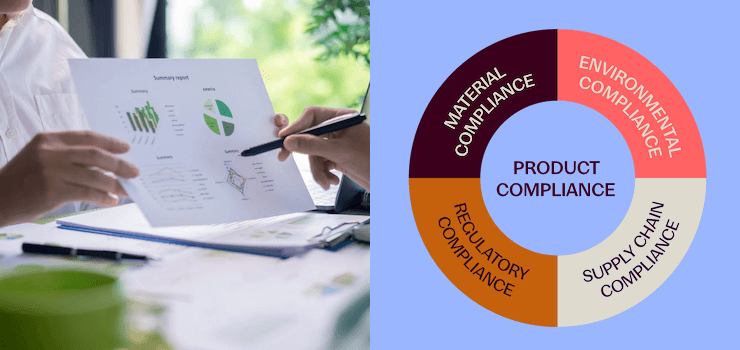At the beginning of March, German ministries published the government draft of a mandatory supply chain due diligence law (“Sorgfaltspflichtengesetz”, “Lieferkettengesetz”), which now needs to be passed by the German Parliament (Bundestag). In this guest article, Dr. Chris Bayer, Principal Investigator at Development International, explains the history, background, and scope of the law and details how companies can prepare for the impending mandatory due diligence legislation.
After eight months of negotiations, on February 12, 2021, three German ministers – representing the Ministry for Labour and Social Affairs, the Ministry for Economic Cooperation and Development, and the Ministry for Economics – announced that they had agreed on a mandatory supply chains due diligence law (#lieferkettengesetz, #sorgfaltspflichtengesetz).
The “Regierungsentwurf” version of March 1, 2021 – to be sent to the Parliament (Bundestag) – is now live. But the clock is ticking: Parliament (Bundestag) will only have a few months to pass it into law before it closes for the summer break (June 25, 2021). As federal elections are scheduled for September, the next few months will prove decisive.
Considering the fact that the German government was seeking to act resolutely following the lacklustre corporate implementation of the 2016 National Action Plan, how are the screws being tightened? And how can companies prepare for the new law?
The NAP Regime
Germany’s 2016 National Action Plan on Business and Human Rights (NAP) outlined corporate human rights due diligence expectations. While the NAP was premised on voluntary engagement on the part of businesses, it foresaw that if fewer than 50% of German companies with more than 500 employees were to implement due diligence systems by 2020, further legislative action would be taken. The government’s quantitative 2020 survey – in which only 455 of the 2250 companies contacted bothered to return valid responses – found that only 13-17% of respondents had adequately implemented the core elements of the UN Guiding Principles on Business and Human Rights, and that 10-12% were deemed on track.
The ministers concluded: “Most of the German large companies did not voluntarily fulfil the expectations set out in the German National Action Plan of 2016. Hence, we are now making them mandatory.” In sum, the ministers took action, making due on their promise. These findings thus triggered the drafting of mandatory due diligence legislation.
Purpose, Scope, and Timeline of the Proposed Law
The primary purpose of the proposed new law is to introduce a corporate duty of care mandate, which would serve to protect human rights and uphold environmental standards. To this end, the law is closely aligned to the due diligence as outlined in the UN Guiding Principles on Business and Human Rights.
The act provides for German companies of a certain size to conduct human rights and environmental due diligence in their own operations and immediate suppliers, efforts which include carrying out risk analyses and the remediation of impacts. The law features a phased-in scope: it enters into force on January 1st, 2023, whereby it will first apply to approximately 600 German companies with over 3000 employees. On January 1st, 2024, the law will then also apply to companies with over 1000 employees, which currently works out to a total of 2891 companies.
Accountability and Enforcement
One contentious issue between the three German ministries was how far into the supply chain due diligence would have to reach. While one camp insisted that diligence should end at Tier 1, the other feared that companies could easily evade responsibility by simply altering the designation of their contractual relationships. The compromise foresees a subject company being accountable: (1) for all of its own business activity and that of its direct suppliers, i.e. those suppliers with which it has engaged in a contract, and (2) where “prompted by circumstance” (“Anlass”/“anlassbezogen”) in the rest of the supply chain.
Following the findings of the risk assessment (“Risikoanalyse”), or where there is a well-substantiated complaint regarding particular links in its value chains is made, the duty of care requirements – “Folgemaßnahmen” – are then triggered. The given company is then charged with taking measures to prevent, minimize, or remediate negative impacts.
Enforcement is to occur through the German Federal Office of Economics and Export Control (Bundesamt für Wirtschaft und Ausfuhrkontrolle – BAFA), which is also charged with overseeing import restrictions into the country. Monitoring of subject companies is to occur, inter alia, through access to documentation, on-site inspections, and subject companies will have to submit annual risk analyses to this agency.
Duty of Care and Liability
Companies principally have a duty of care (“Bemühenspflicht”), a duty closely patterned after the French duty of care law. They may be held liable by the BAFA only if the damages could have been foreseen and avoided with proper due diligence. Companies shall not be liable for violation if they did what they legally could to prevent it.
The agency may issue fines, which may reach up to 10% of the annual turnover. When the agency issues a fine, it will take into account any remedy the company already provided in response to an impact. The German government will then invest the fine payments in causes related to business and human rights matters. Moreover, a fined company may be excluded from public procurement for up to three years.
Stakeholders are also invited to play a role where a company’s duty of care is alleged to have been violated: the new legal framework provides for trade unions and NGO to serve as legal representatives of adversely affected plaintiffs – i.e., victims will be able to provide NGOs and Unions with power-of-attorney, in order to be formally represented in a German court.
Accountability is further enhanced through the requirement that subject companies publish an annual report.
How Companies Can Prepare for the Upcoming Legislation
Companies indeed have a menu of options at their disposal to effectively address the (potentially) negative impacts, whether or not a particular risk has materialized. Some companies take on the legislative megatrends as an opportunity to re-think particular business models or the very design of products.
In order to prepare for this impending law, compliance departments may consider adding, based on their particular risk analysis (“Risikoanalyse”), sustainability and human rights metrics into their purview. Such analysis yields relevant risk and vulnerabilities according to the company’s particular sector and sourcing fingerprint. As cited in the draft law, the UN Guiding Principles and the 2016 NAP may serve as relevant frameworks.
Similarly, companies may consider revamping their supplier code of conduct (“Verhaltenskodex”) – and its means of communication. Further, the company may consider leveraging its influence over suppliers and service providers, by in turn embedding in contracts clauses that require a duty of care. Active supplier/provider monitoring is thereafter a must. For example, audits and spot checks are unavoidable. Here, the principle of engagement before disengagement (“Befähigung vor Rückzug”) might structure a company’s modus operandi, with business termination only to be deployed as the very last option (ultima ratio). A company might judge suppliers/providers based on their own requirements, in turn, for their Tier 1 engagement. Future suppliers/providers may also be assessed through relevant criteria before their on-boarding.
Outlook on the upcoming legislation
Arguing that this law will advance fair competition, Development Minister Gerd Müller believes that Germany’s “eco-social economic model can be a blueprint for a global economy.” Indeed, it very much looks like core aspects of the German law, including the type of liability applied, will also feature front and center in the impending EU duty of care legislation.
iPoint’s software enhances your supply chain management and gives you greater visibility and control throughout your supply chain. It helps you identify and mitigate the risks of negative impacts like human rights violations, thus protecting your brand reputation. With the iPoint Supply Chain Survey, you can identify, track, and prevent human rights violations in your supply chain and adapt your human rights programs accordingly. Learn more here.





.png)
